Indigenous Governance Database
legal infrastructure
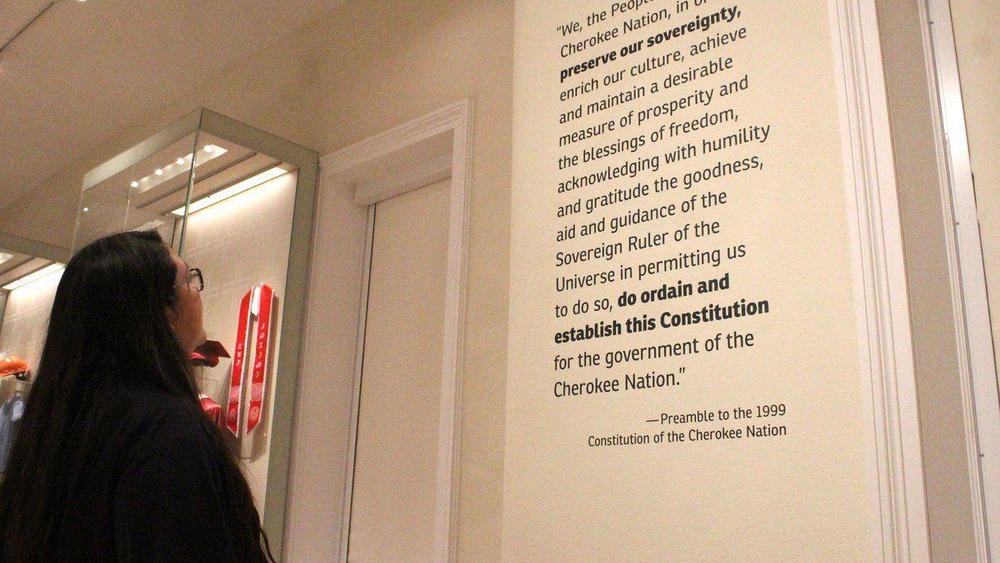
Cherokee Nation '99 Constitution Incorporated Older Ideas
Before the Cherokee Nation 1999 Constitution was ratified by voters in 2003 and recognized by the federal government in 2006, the tribe was governed under different laws that required extensive input and oversight by Cherokees when they decided to rewrite the document in 1995. Under the 1975…
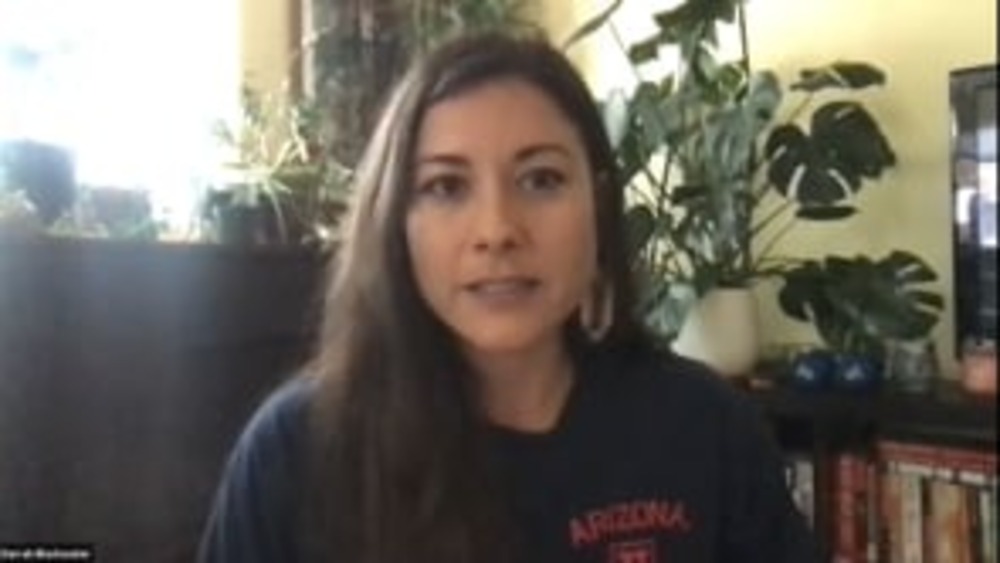
Indigenize the Internet: How to close the digital divide by respecting tribal sovereignty by Darrah Blackwater
Broadband internet and the tools necessary to access it are critical for economic development, education and employment opportunities, and public health and safety for tribal nations and their citizens. Broadband internet is an essential utility, especially during this global pandemic, which is…
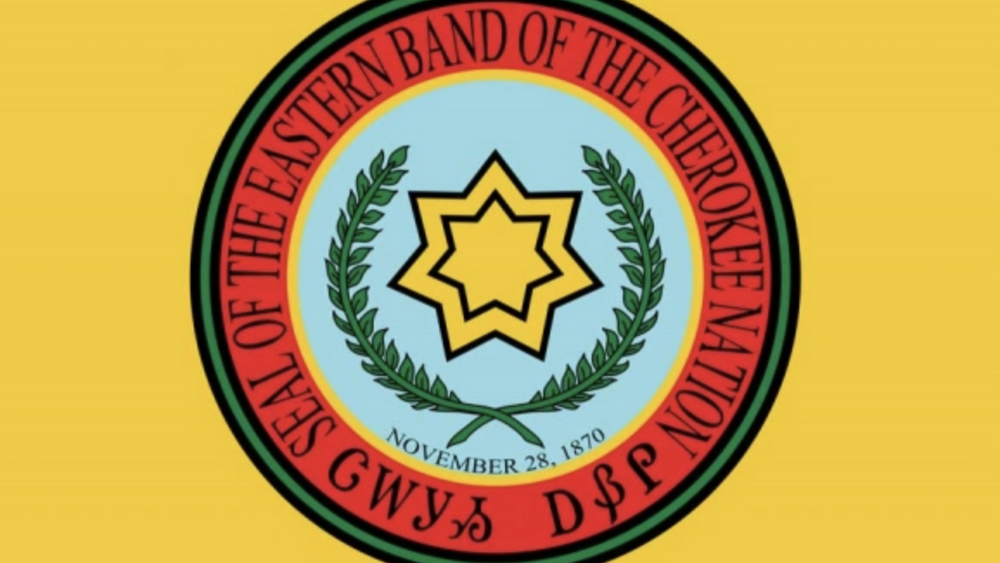
Constitution proposed for Cherokee
Cherokee voters will have the chance to give their nation a long-awaited constitution if Tribal Council approves a referendum question proposed for the September ballot. “Right now we don’t have a constitution. We have a charter, and a charter is for an organization, a corporation or…
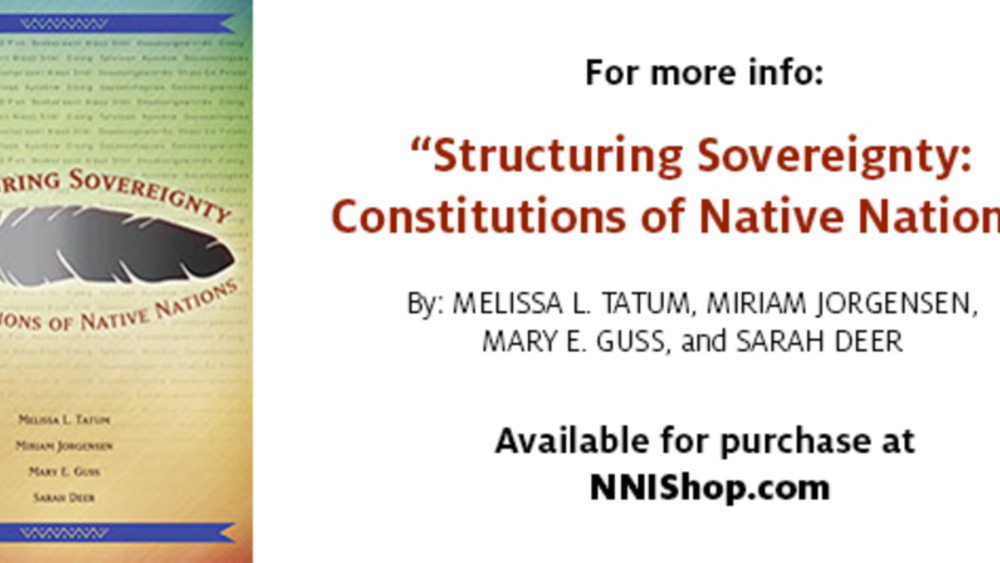
Tsawwassen First Nation Constitution
Location: British Columbia, Canada Population: 328 Date of Constitution: 2007, as amended 2009
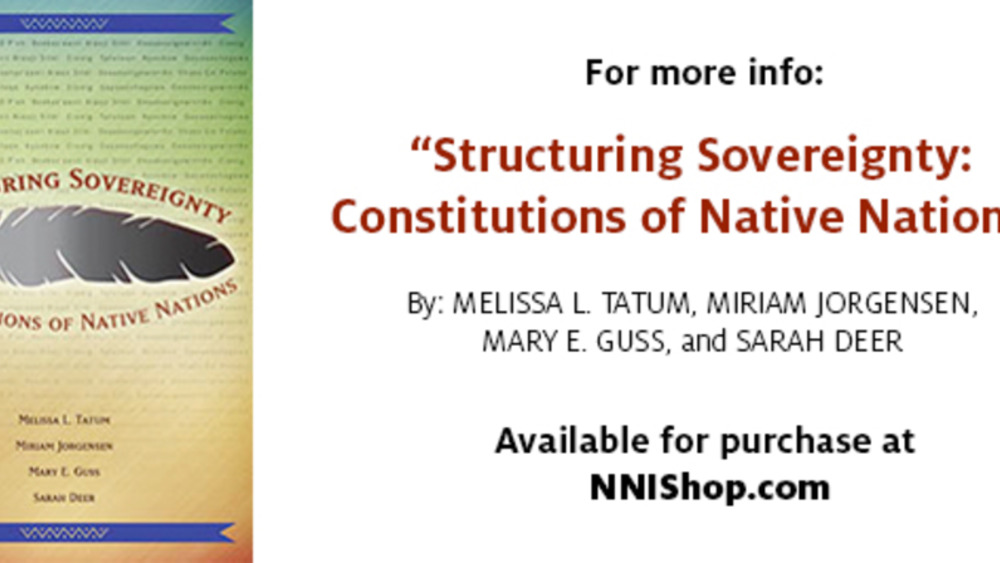
Saint Regis Mohawk Tribe Constitution
Location: Spans border between New York and Canada Population: 2700 Date of Constitution: 1995
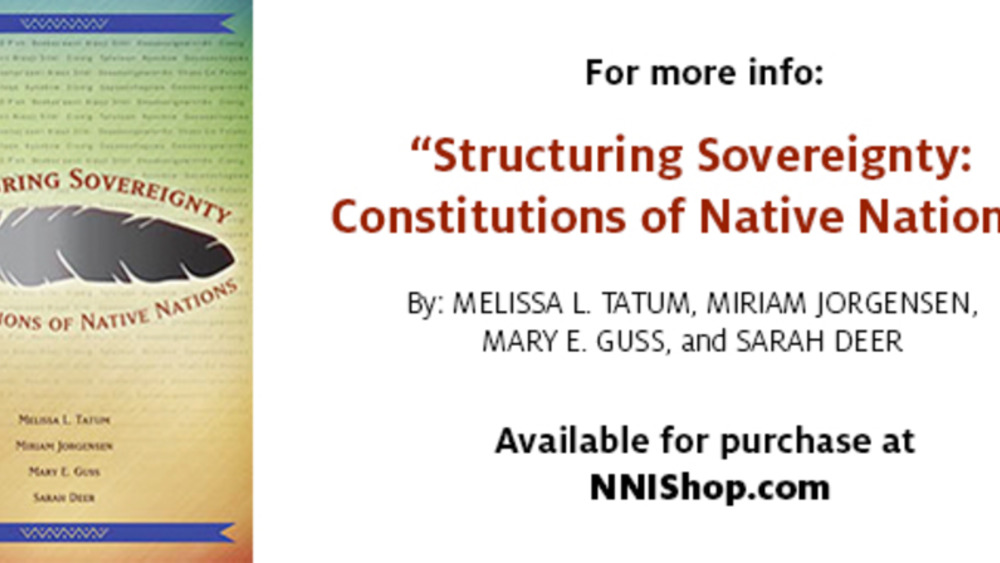
Skokomish Indian Tribe Constitution
Location: Washington State Population: 489 Date of Constitution: 1938, as amended in 1980
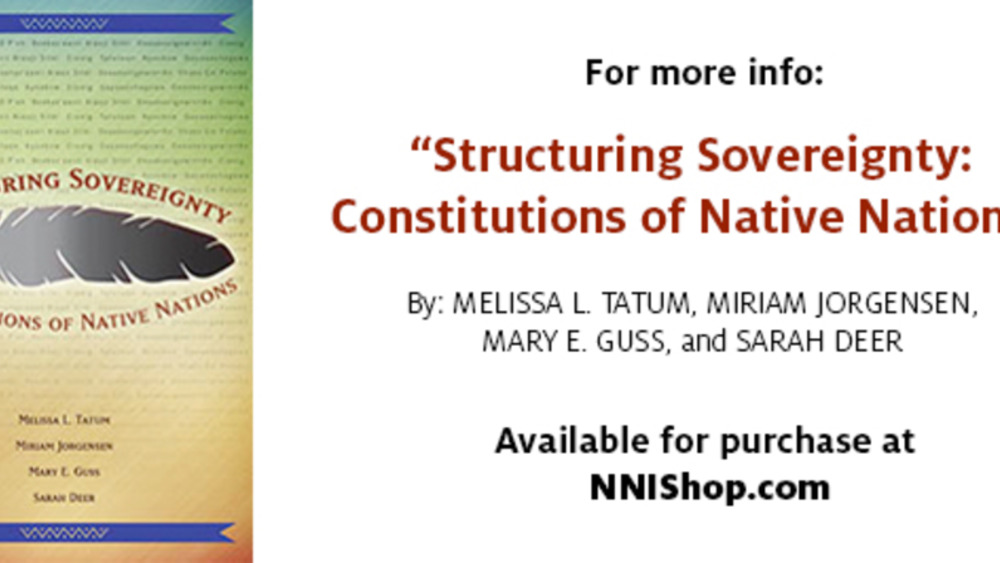
Sault Ste. Marie Tribe of Chippewa Indians Constitution
Location: Upper Peninsula of Michigan Population: 40,000 Date of Constitution: 1975
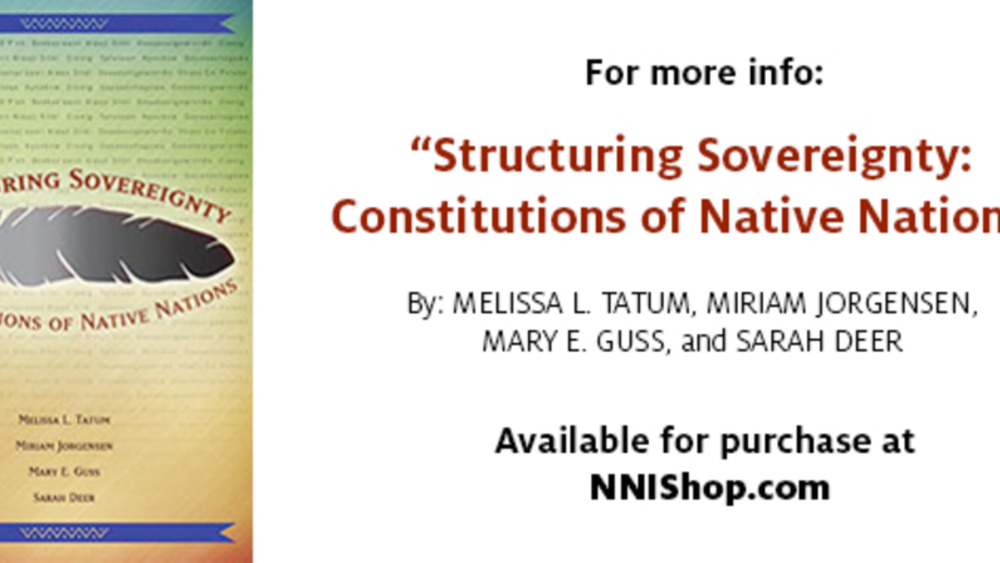
Poarch Band of Creek Indians Constitution
Location: Alabama Population: 2300 Date of Constitution: 1985, as amended 1997, 2001, 2003, 2006, 2008, 2009, 2010, 2011, and 2012
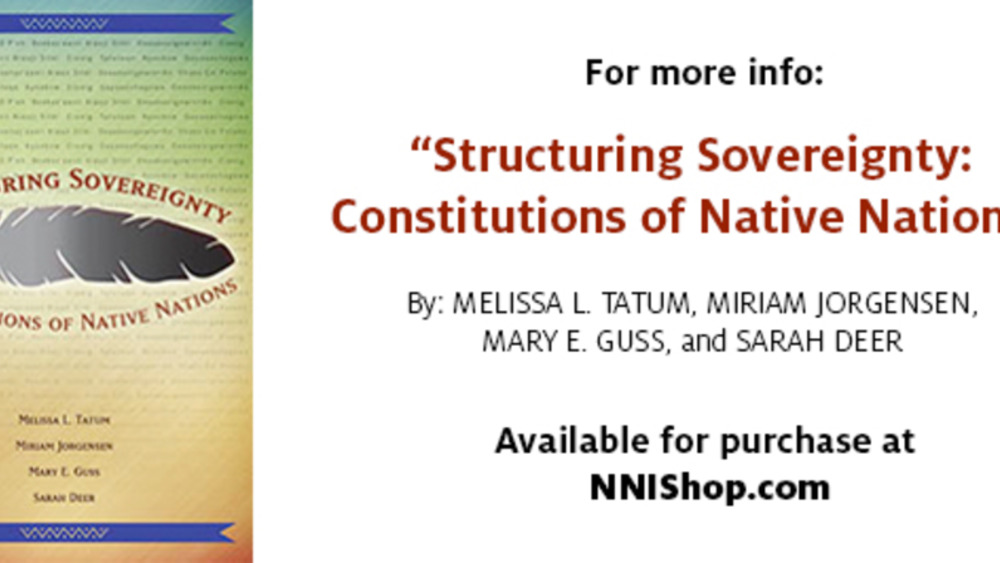
Nez Perce Tribe Constitution
Location: Idaho Population: 3500 Date of Constitution: 1948, as amended 1961, 1983, 1986, 1988, and 1999.
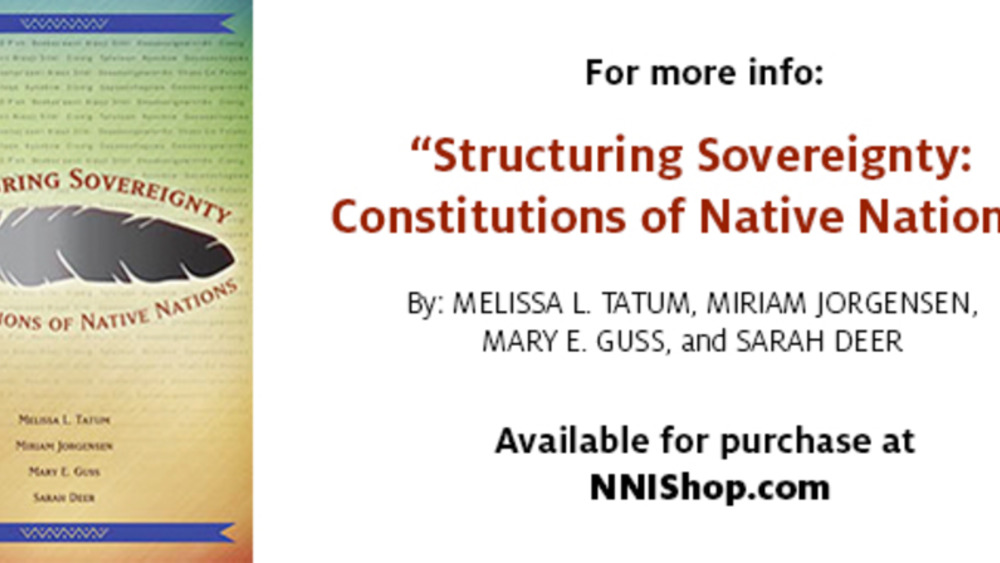
Pueblo of Laguna Constitution
Location: New Mexico Population: 3600 Date of Constitution: 1958
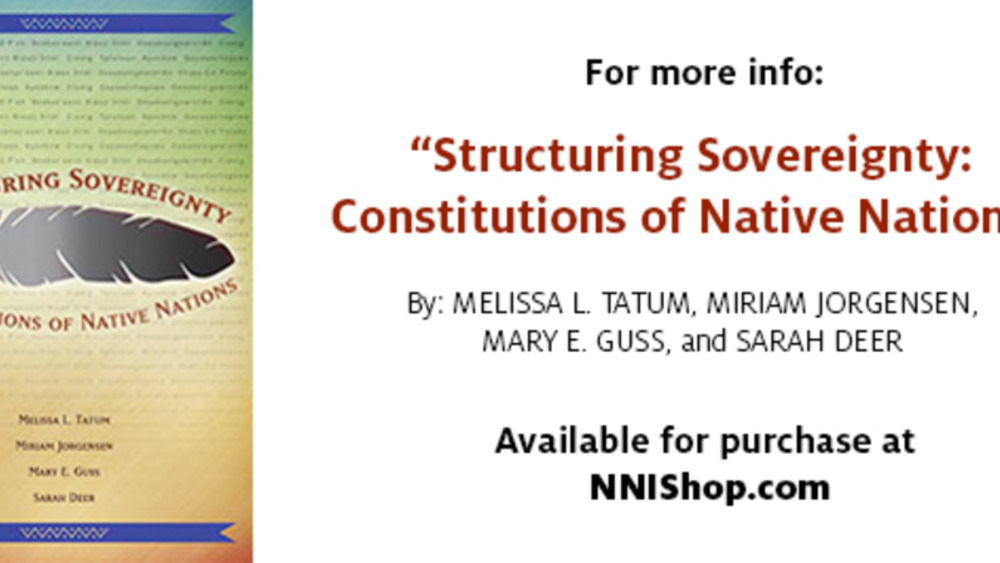
Native Tribe of Koyukuk Constitution
Location: In the western central portion of Alaska Population: 95 Date of Constitution: 1992, as amended 1994
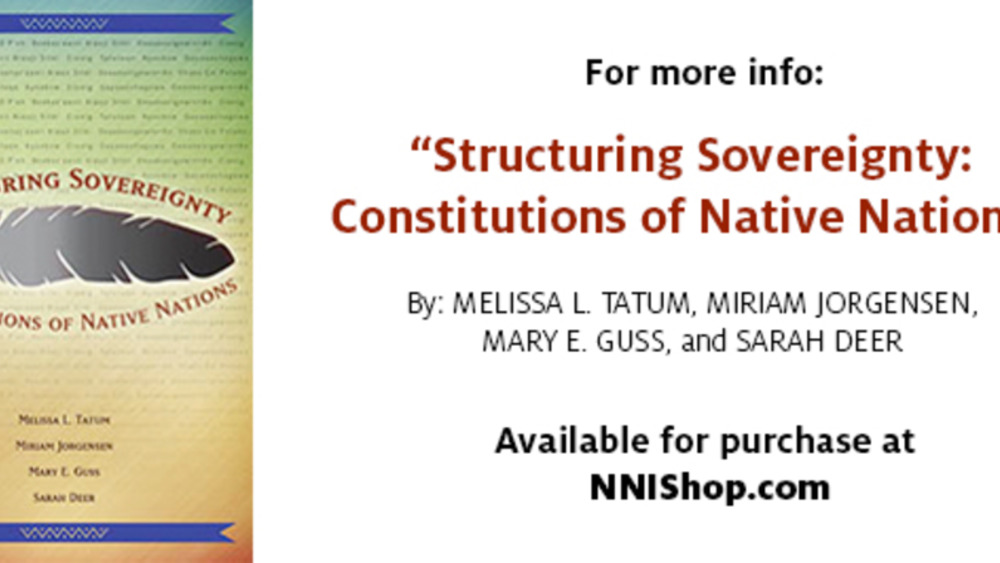
Kialegee Tribal Town Constitution
Location: Near city of Wetumka in central Oklahoma Population: 700 Date of Constitution: 1941 Date of Constitution: Originally part of Muscogee (Creek) Nation
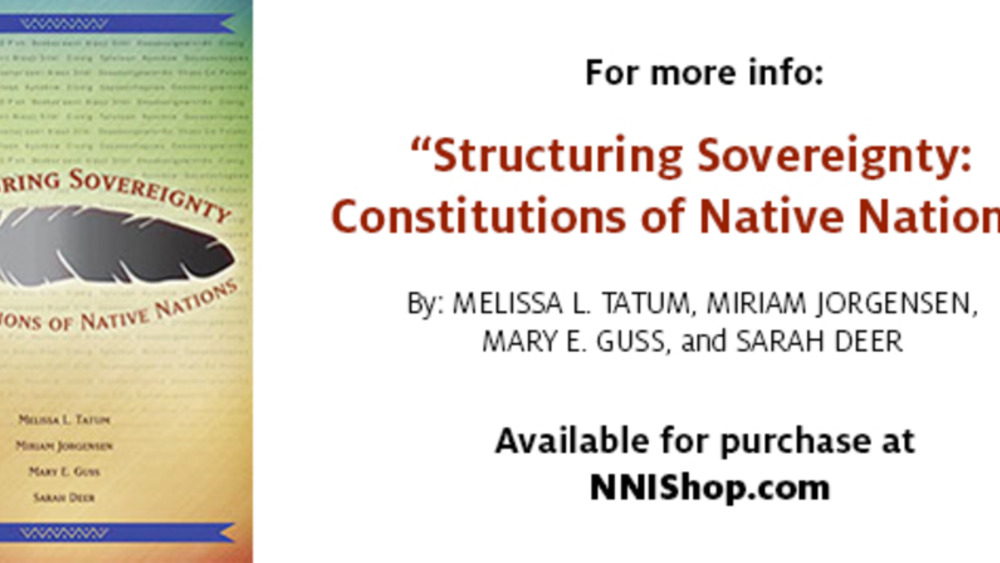
Key First Nation Constitution
Location: Saskatechewan, Canada Population: 1114 Date of Constitution: 2004
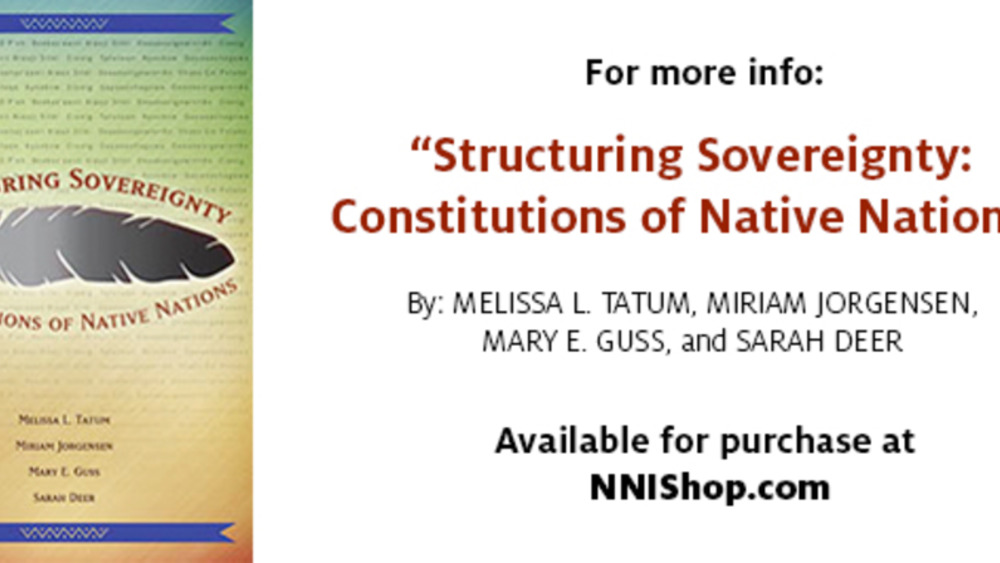
Kaw Nation Constitution
Location: North central Okahoma Population: 3,126 Date of Constitution: 2011
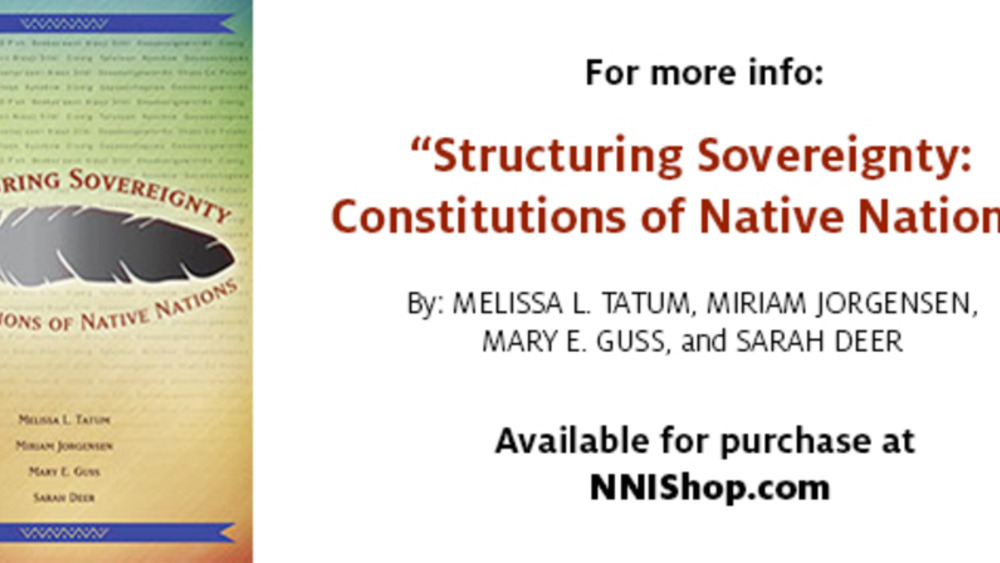
Huu-ay-aht First Nations Constitution
Location: British Columbia, Canada Population: 684 Date of Constitution: 2007
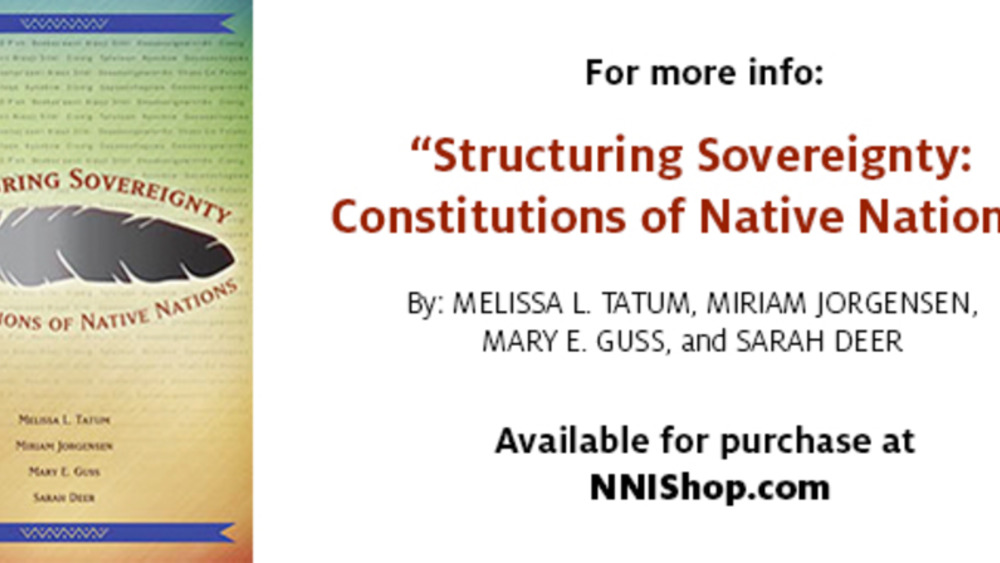
Native Tribe of Huslia Constitution
Location: in the western portion of Alaska Population: 315 Date of Constitution: 1992, as amended 1995
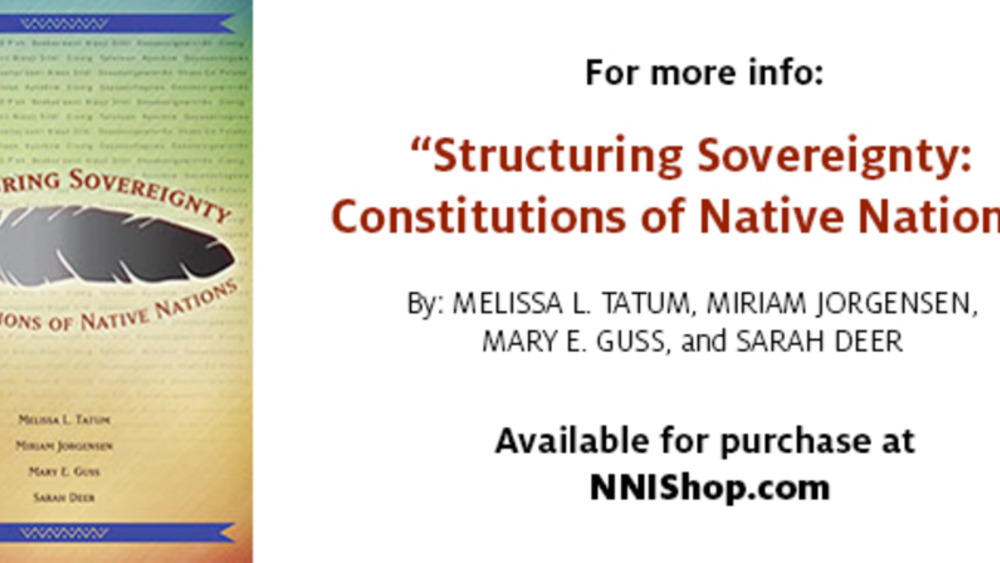
Gitanyow Nation Constitution
Location: British Columbia Population: 802 Date of Constitution: 2009
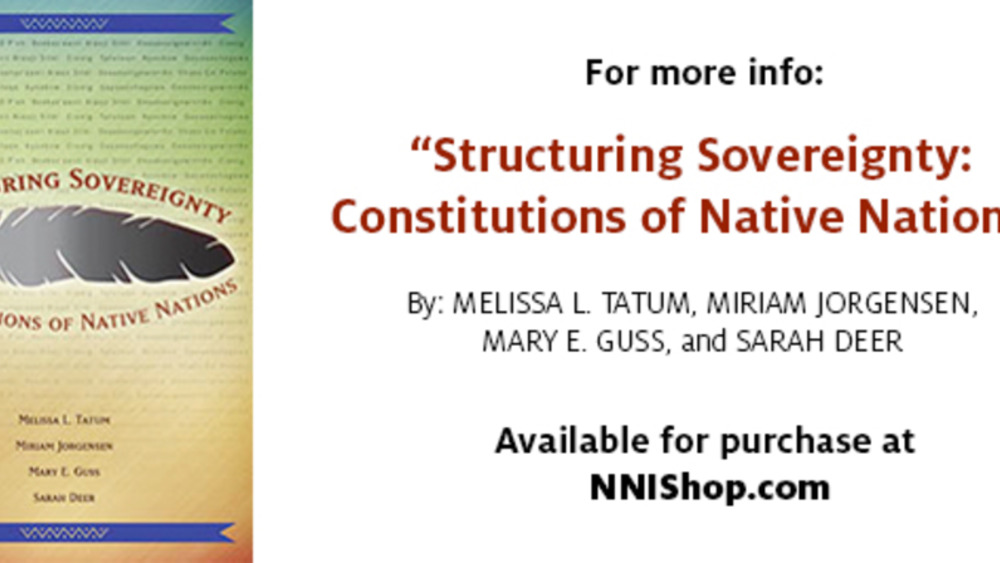
Crow Tribe Constitution
Location: Montana Population: 12,000 Date of Constitution: 2001 Preamble: We, the adult members of the Crow Tribe of Indians located on the Crow Indian Reservation as established by the Fort Laramie Treaties of 1851 and 1868, in an effort to enforce and exercise our treaty rights, our…
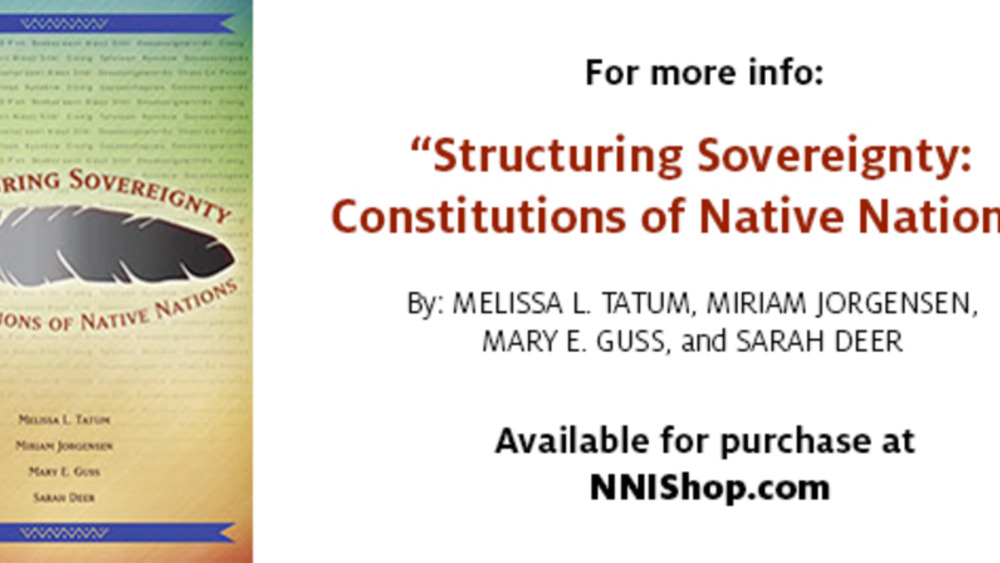
Comanche Nation Constitution
The Comanche Nation is located in Oklahoma with a population of 14,700 people. The constitution was enacted in 1966, and amended in 1976, 1978, 1979, 1981, 1984, 1985, 1994, and 2002. PREAMBLE: Invoking the guidance of Almighty God, we, the members of the Comanche Nation with faith in the purposes…
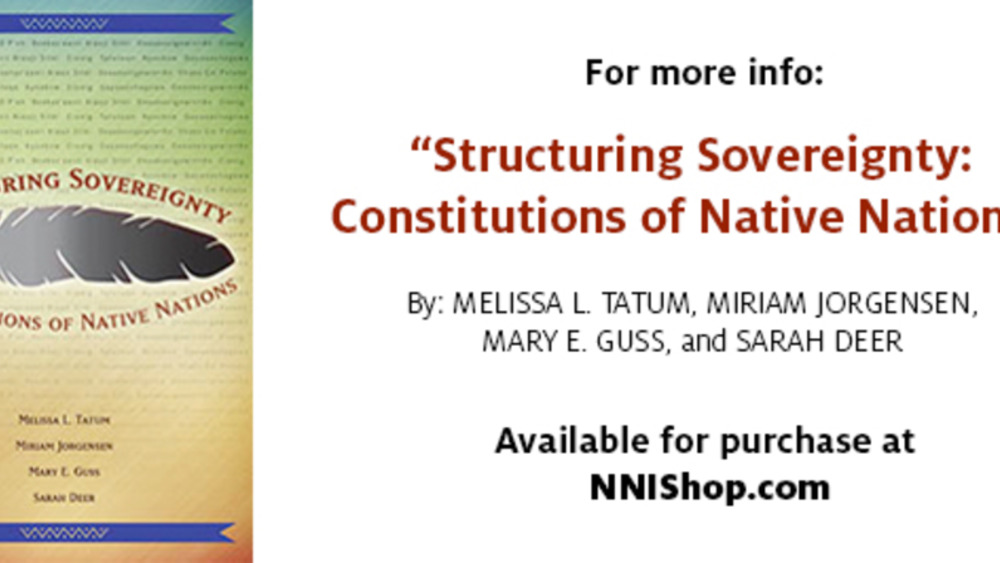
Cherokee Nation Constitution
Cherokee Nation is spread across 14 counties in northeastern Oklahoma with a population of 300,000 people. The constitution was enacted in 2003. Cherokee Nation allows citizens who live outside the territory to vote in elections and be represented on the council. Preamble: We, the People of…
